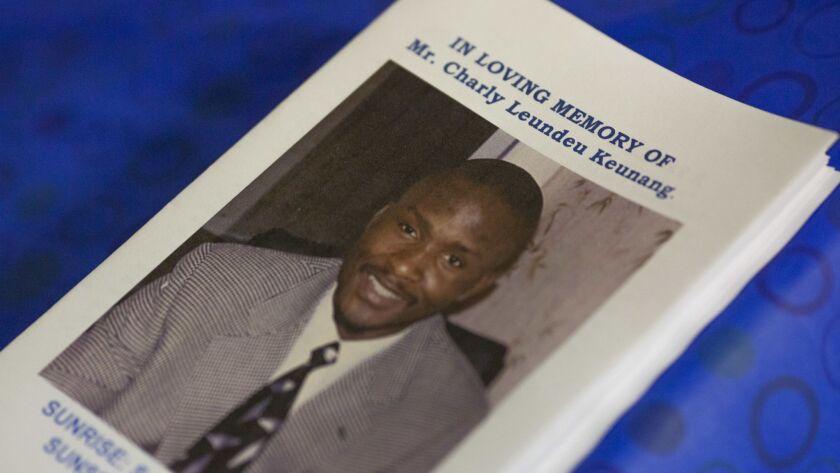
It was a Sunday in 2015 much like today and I was scrolling through Facebook posts when a message arrived from one of my friends in Los Angeles. The message contained a cell phone video taken by a bystander of the killing by police of a homeless and mentally ill black man that had just occurred.
There was no warning with the video. When I opened it, I experienced one of the greatest shocks of my life. An unarmed, disabled, homeless man had just been shot and killed on a beautiful sunny Sunday on Skid Row.
Charly “Africa” Keunang was living in a tent on the street. He had become involved in an altercation with the homeless man living in the tent adjacent to his. Someone called the police. Five officers responded. Mr. Keunang was shot 6 times and killed within 6 and a half minutes of their arrival.
There appeared to be no attempt at all made to de-escalate the situation. An officer claimed that Mr. Keunang had reached for his gun. However, Mr. Keunang”s fingerprints were never found on that gun. Three years later, the City of Los Angeles paid Mr. Keunang”s family $1.9 million dollars in a settlement regarding his death.
I had several reactions besides my initial shock and horror over what had just happened. First, Mr. Keunang”s toxicology report showed that he had methamphetamine in his system. I don’t know whether he was high at the time of his death or whether these were trace elements remaining in his system but whatever the case, health care personnel often encounter people who may be high or intoxicated but we do not shoot them. There are safer ways to respond which can be learned.
Second, I wished that these officers had received de-escalation training. The legal record noted that the officers’ behavior actually escalated the situation. If we are going to expect police officers to respond to mental health-related incidents, we need to provide them with the appropriate skills and training. Right now we are all too often expecting the police to respond to incidents like this one unprepared. Yes, they’re very likely racist police officers out there but this is not the case with all officers.
Third, I have discussed police behavior for many years with a number of high ranking police officers. They all expressed pride at rarely to never using their guns.
As we rethink police behavior, let us focus on providing more appropriate training. This matters again today given reports that meth was found in George Floyd’s system. Again, I don’t know whether he was high or whether traces were found but his tragic death might have been avoided if responding police had been trained in options other than the use of overwhelming force. #policebrutality #DeescalationTraining #ICantBreathe
Image Source: latimes.com